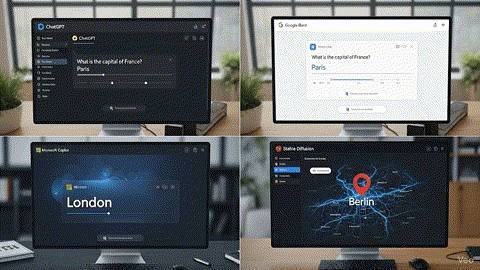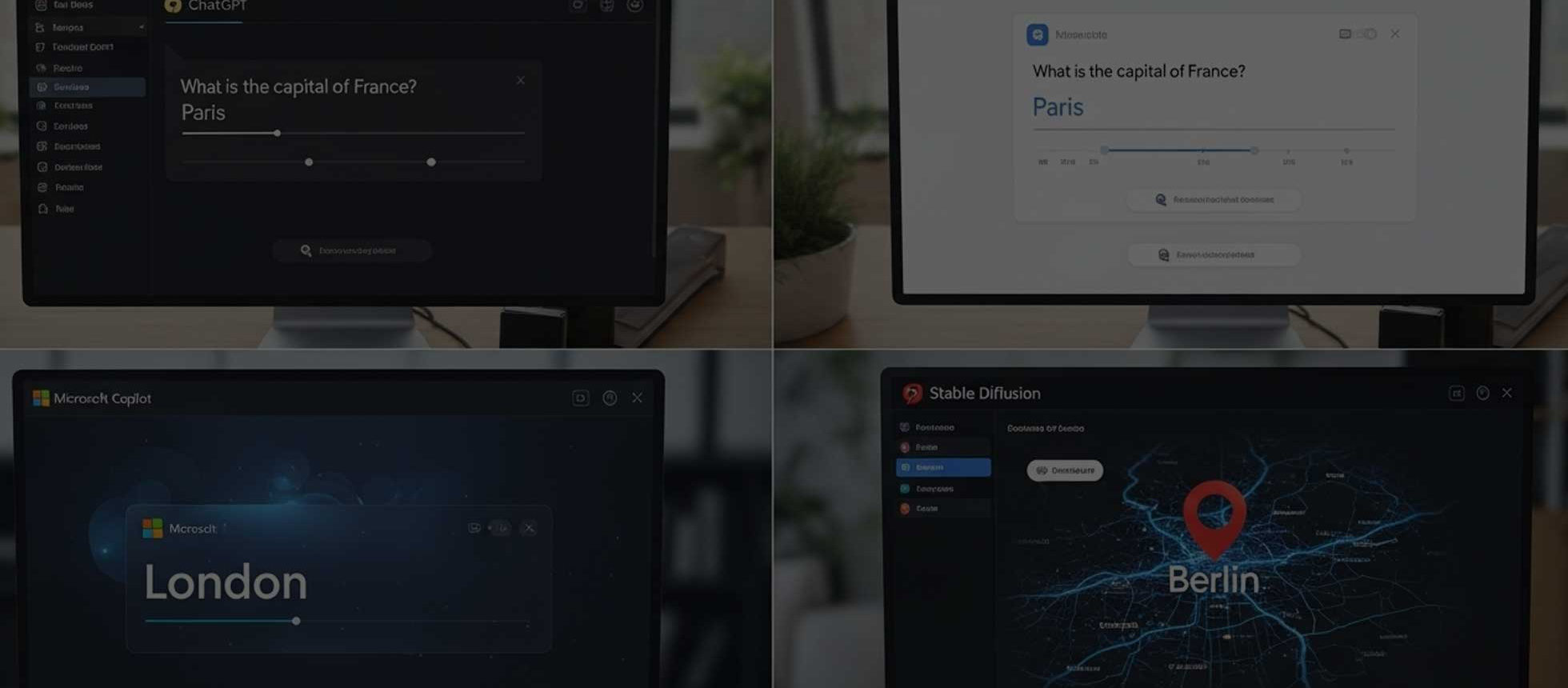
AI chatbots can give different answers to the same question depending on timing, phrasing, or device.
These shifts happen because AI models are susceptible to context — even small changes in wording or updates can alter their tone and output.
For example, systems like GPT-4 are trained to be safe and reliable.
Human feedback fine-tuning makes them cautious by default, avoiding edgy humor or controversy unless prompted.
If ChatGPT feels overly polite or neutral, that’s intentional — it’s designed to prioritize helpfulness and professionalism.
| AI Platform | Responses Differ When Logged In | Desktop vs Mobile Differences | Additional Response Factors |
| Perplexity | Yes. Logged-out users default to Perplexity’s proprietary model; logged-in or paid users can select Claude or GPT-4-class models. However, even logged-in users may get downgraded responses for “simple” prompts to reduce costs . | Minor UI and context differences. The web app integrates directly with browser pages on desktop, offering contextual summarization not available on mobile . | Model selection (Claude, GPT-4, or in-house model), search integration, incognito mode, and conversation complexity affect results . |
| ChatGPT | Yes. Logged-in users can access GPT-4 or GPT-4o; logged-out users are limited to GPT-4o-mini with reduced reasoning quality . | The desktop app supports file uploads and voice input (with GPT-4o). Mobile responses can vary slightly due to network speed and voice transcription context . | Model version, memory features (for Plus users), temporary chat mode, and plugin/browser integration influence responses . |
| Claude | Yes. Logged-out (API-free) use isn’t available; users must sign in. Response tone and memory persistence change with account login and organization context . | Minimal. Web and mobile are nearly identical, but context carry-over (like document handling) is smoother on desktop. | Model type (Instant vs Sonnet vs Opus), chat history enabled/disabled, and file upload context significantly alter responses . |
| Grok | Yes. Uses X.com/OAuth sign-in; stored account data (Google/Twitter) changes personalization and memory. Logging out often resets context, which causes different tone and continuity . | Slight interface differences. Mobile often prioritizes humor and brevity vs longer analytical replies on desktop . | Access level (basic vs premium), social feed integration, and stored preferences from user tweets affect tone and output . |
| Google AI (Gemini / Search Overviews) | Generally no. AI Overviews now produce nearly identical output whether signed in or not, though personalization and ads change when signed in . | Desktop allows linked source previews and context panes; mobile focuses on single-column simplified summaries . | Search history, personalization settings, region, and SafeSearch level affect summaries . |
| Microsoft Copilot (Edge / Windows / Office) | Yes. Logged-in users access corporate, enterprise, or personal Microsoft Graph data; logged-out users receive general web responses only . | Desktop integrates with Edge/Office apps. Mobile Copilot (in Bing app) gives shorter, task-driven answers. | Account type (Microsoft 365 vs free Bing), enterprise data access, permission scopes, and connected sources (Outlook, SharePoint) strongly affect output . |
Key Observations
- Login state directly controls model version and personalization level for Perplexity, ChatGPT, Claude, Grok, and Copilot.
- Device type mainly affects interface and contextual breadth, not the underlying model reasoning (except Grok’s humor-tuned replies).
- Other important factors influencing variability include:
-
- Model/version availability (e.g., GPT-4o vs 4o-mini).
- Subscription tier or enterprise access (notably ChatGPT Plus and Copilot 365).
- Context understanding from browser integration (Perplexity, Copilot).
- User personalization or memory settings (ChatGPT, Claude).
- Region and content policies (Google AI AI, Grok).
Resources
PERPLEXITY – Account and Settings
CHAT GPT – ChatGPT response different “logged on versus not logged on”?
XXAI – Comprehensive Guide: How to Use ChatGPT Without Logging In
CLAUDE – 10 Claude Response Errors You Can Easily Avoid (With Quick Fixes)
DORIK – How to Use Grok AI: A Comprehensive Guide
ANDROID POLICE – AI Overviews in Google Search don’t care if you’re signed in or out anymore
SEARCH ENGINE LAND – Google AI Overviews now show for signed-out users in the US
MICROSOFT – Frequently asked questions about Copilot Chat



